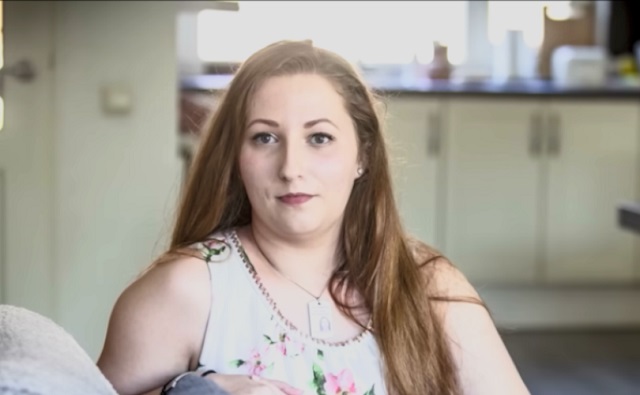Alberta
Canadians not feeling great about personal finances… Even worse in Alberta

From MNP Canada
According to the latest MNP Consumer Debt Index being released today, Albertans are finding themselves with a lot less wiggle room in household budgets each month. The amount of money left over after paying all their bills and debt obligations has reached its lowest level since tracking began. Even though the Bank of Canada is expected to keep interest rates stable this week, six in ten in the province say they are more concerned about their ability to repay their debts than they used to be.
MNP Consumer Debt Index Update: Albertans finding themselves with a lot less money each month, six in ten concerned their ability to repay their debts
Stable interest rates are a cold comfort to those already having a difficult time making ends meet
Even though the Bank of Canada has stated that it will keep interest rates stable until next year, six in ten (58%) Albertans say they are more concerned about their ability to repay their debts than they used to be. The concern could be the result of steeply declining wiggle room in household budgets. After paying all their current bills and debt obligations, Albertans say they are, on average, left with $459 at the end of the month, a drop of $209 since June and the lowest level since tracking began in February 2016. Half (49%, +5 pts) say they are left with less than $200 including three in ten (34%) who say they already don’t make enough money to cover all their bills and debt obligations each month (+9 pts).
The findings are part of the latest MNP Consumer Debt Index conducted quarterly by Ipsos. Now in its tenth wave, the Index tracks Canadians’ attitudes about their consumer debt and their perception of their ability to meet their monthly payment obligations.
Average Finances Left at Month-End

Image Caption: Albertans were asked: Thinking about the amount of after-tax income you make each month compared to the amount of your bills and debt obligations each month, how much is left over? In other words, how much wiggle room do you have before you wouldn’t be able to pay all your bills and debt payments each month?
“There has been a marked decline in the amount of wiggle room that households have in Alberta. says Donna Carson, a Licensed Insolvency Trustee with MNP LTD, the country’s largest personal insolvency practice. “Family budgets are being strained by everyday expenses which means many aren’t putting anything away for rainy day savings and that puts them at risk. It is most often unexpected expenses that force people to take on more debt they can’t afford and that begins a cycle of increasing servicing costs, and eventual default.”
It’s no surprise that with less in the bank at month-end, Albertans’ ability to cope with unexpected expenses has been shaken. Seven in ten (70%) are not confident in their ability to cope with life-changing events – such as a divorce, unexpected auto repairs, loss of employment or the death of a family member – without increasing their debt.
“A job loss or an unexpected expense are most devastating for people who already have a large amount of debt. Our research continues to show just how vulnerable Alberta households are to inevitable life events like a car repair,” says Carson who recommends having at least three to six months of expenses saved in case of emergencies.
Albertans may have fewer dollars left at month-end to buffer them from sudden expenses but, somewhat surprisingly, they are growing generally far more positive about their personal financial situations than those in other provinces. According to the index, one quarter (25%) say that their debt situation is better than it was a year ago (+6 pts) and one in three (32%) say that it is better than five years ago (+7 pts). In addition to being optimistic about the present, there has been a significant increase in the proportion who feel more positive about the future. Four in ten (44%) expect that their debt situation a year from now will be better, a jump of 19 points. Six in ten (58%) believe that it will be better five years from now (+13 pts).
“The current holding pattern on interest rates and increasing economic optimism in the province could be giving Albertans a sense of relief about their finances. Still, the fact remains that many Albertans are deeply indebted and most don’t have a clear path to repayment,” says Carson pointing to evidence from the research showing that many may intend to take on more credit to make ends meet over the next year.
Just about half (48%) of Albertans say they don’t think that they will be able to cover all their living and family expenses for the next 12 months without going further into debt, a one-point decrease since June. Furthermore, just under half (49%) are confident they won’t have any debt in retirement, a one-point increase.
“Some may have resigned themselves to being in debt for life. Interest rates may remain stable but there are many already struggling to make ends meet at the current rate,” says Carson.
A large portion of Albertans (53%) are concerned about how rising interest rates will impact their financial situation, up one point since June. Fifty-two per cent agree that if interest rates go up much more, they are afraid they will be in financial trouble (-4 pts). Finally, a third (35%) are still concerned that rising interest rates could move them towards bankruptcy (-7 pts).
“The single biggest mistake people make is taking on more debt to try and deal with debt. Even if you are swimming in credit card debt, with a line of credit, a mortgage, a car loan or all of the above, you can get help to design a debt relief strategy,” says Carson.
MNP LTD offers free consultations with Licensed Insolvency Trustees to help individuals understand their debt relief options. Licensed Insolvency Trustees are the only government-regulated debt professionals who offer a full range of debt relief options and can guarantee legal protection from creditors through consumer proposals and bankruptcies.
About the MNP Consumer Debt Index
The MNP Consumer Debt Index measures Canadians’ attitudes toward their consumer debt and gauges their ability to pay their bills, endure unexpected expenses, and absorb interest-rate fluctuations without approaching insolvency. Conducted by Ipsos and updated quarterly, the Index is an industry-leading barometer of financial pressure or relief among Canadians. Visit www.MNPdebt.ca/CDI to learn more.
The latest data, representing the tenth wave of the MNP Consumer Debt Index, was compiled by Ipsos on behalf of MNP LTD between September 4 and September 9, 2019. For this survey, a sample of 2,002 Canadians aged 18 years and over was interviewed. The precision of online polls is measured using a credibility interval. In this case, the results are accurate to within +2.5 percentage points, 19 times out of 20, of what the results would have been had all Canadian adults been polled. The credibility interval will be wider among subsets of the population. All sample surveys and polls may be subject to other sources of error, including, but not limited to coverage error, and measurement error.
Alberta
Coutts Three verdict: A warning to protestors who act as liaison with police
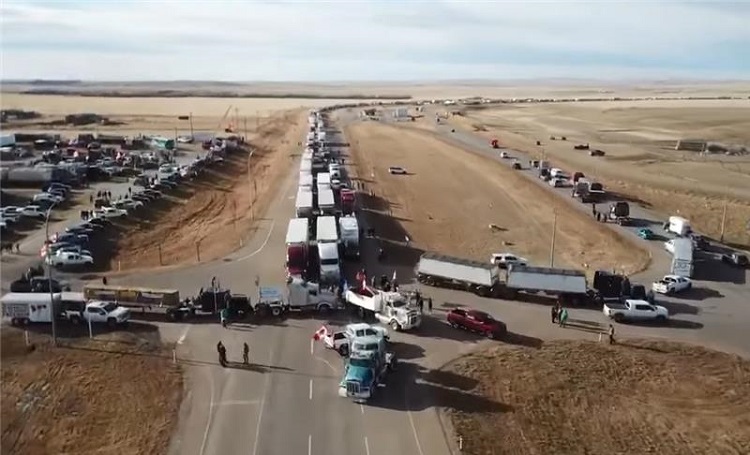
From the Frontier Centre for Public Policy
By Ray McGinnis
During the trial numbers of RCMP officers conceded that the Coutts Three were helpful in their interactions with the law. As well, there didn’t seem to be any truth to the suggestion that Van Huigenbos, Van Herk and Janzen were leaders of the protest.
Twelve jurors have found the Coutts Three guilty of mischief over $5,000 at a courthouse in Lethbridge, Alberta. Marco Van Huigenbois, Alex Van Herk and George Janzen will appear again in court on July 22 for sentencing.
Van Huigenbois, Van Herk and Janzen were each protesting at the Coutts Blockade in 2022. A blockade of Alberta Highway 4 began on January 29, 2022, blocking traffic, on and off, on Alberta Highway 4 near the Coutts-Sweetgrass Canada-USA border crossing. The protests were in support of the Freedom Convoy protests in Ottawa.
Protests began due to the vaccine mandates for truckers entering Canada, and lockdowns that bankrupted 120,000 small businesses. Government edicts were purportedly for “public health” to stop the spread of the C-19 virus. Yet the CDC’s Dr. Rachel Wallensky admitted on CNN in August 2021 the vaccine did not prevent infection or stop transmission.
By February 2022, a US court forced Pfizer to release its “Cumulative Analysis of Post-Authorization Adverse Event Reports” revealing the company knew by the end of February, 2021, that 1,223 people had a “case outcome” of “fatal” as a result of taking the companies’ vaccine.
On the day of February 14, 2022, the three men spoke to Coutts protesters after a cache of weapons had been displayed by the RCMP. These were in connection with the arrest of the Coutts Four. Van Huigenbos and others persuaded the protesters to leave Coutts, which they did by February 15, 2022.
During the trial numbers of RCMP officers conceded that the Coutts Three were helpful in their interactions with the law. As well, there didn’t seem to be any truth to the suggestion that Van Huigenbos, Van Herk and Janzen were leaders of the protest.
RCMP officer Greg Tulloch testified that there were a number of “factions” within the larger protest group. These factions had strong disagreements about how to proceed with the protest. The Crown contended the Coutts Three were the leaders of the protest.
During his testimony, Tulloch recalled how Van Huigenbos and Janzen assisted him in getting past the “vehicle blockade to enter Coutts at a time during the protest when access to Coutts from the north via the AB-4 highway was blocked.” Tulloch also testified that Janzen and Van Huigenbos helped with handling RCMP negotiations with the protesters. Tulloch gave credit to these two “being able to help move vehicles at times to open lanes on the AB-4 highway to facilitate the flow of traffic in both directions.”
During cross examination by George Janzen’s lawyer, Alan Honner, Tulloch stated that he noticed two of the defendants assisting RCMP with reopening the highway in both directions. Honner said in summary, “[Marco Van Huigenbos and George Janzen] didn’t close the road, they opened it.”
Mark Wielgosz, an RCMP officer for over twenty years, worked as a liaison between law enforcement and protesters at the Coutts blockade. Taking the stand, he concurred that there was sharp disagreement among the Coutts protesters and the path forward with their demonstration. Rebel News video clips “submitted by both the Crown and defence teams captured these disagreements as demonstrators congregated in the Smuggler’s Saloon, a location where many of the protesters met to discuss and debate their demonstration.” Wielgosz made several attempts to name the leaders of the protest in his role as a RCMP liaison with the protesters, but was unsuccessful.”
However, the Crown maintained that the protest unlawfully obstructed people’s access to property on Highway 4.
Canada’s Criminal Code defines mischief as follows in Section 430:
Every one commits mischief who willfully
(a) destroys or damages property;
(b) renders property dangerous, useless, inoperative or ineffective;
(c) obstructs, interrupts or interferes with the lawful use, enjoyment or operation of property; or
(d) obstructs, interrupts or interferes with any person in the lawful use, enjoyment or operation of property.
Robert Kraychik reported that “RCMP Superintendent Gordon Corbett…cried (no comment on the sincerity of this emoting) while testifying about a female RCMP officer that was startled by the movement of a tractor with a large blade during the Coutts blockade/protest.” This was the climax of the trial. A tractor moving some distance away from an officer in rural Alberta, with blades. The shock of it all.
No evidence was presented in the trial that Van Huigenbos, Van Herk and Janzen destroyed or damaged property. Officers testified they couldn’t identify who the protest leaders were. They testified the defendants assisted with opening traffic lanes, and winding down the protest.
By volunteering to liaise with the RCMP, the Crown depicted the Coutts Three as the protest leaders. Who will choose to volunteer at any future peaceful, non-violent, protest to act as a liaison with the policing authorities? Knowing of the verdict handed down on April 16, 2024, in Lethbridge?
Ray McGinnis is a Senior Fellow with the Frontier Centre for Public Policy. His forthcoming book is Unjustified: The Emergencies Act and the Inquiry that Got It Wrong.
Alberta
Maxime Bernier says it’s ‘astounding’ Alberta is ‘pushing’ COVID boosters, tells Danielle Smith to stop it

From LifeSiteNews
The People’s Party of Canada leader tells the Alberta government: ‘It’s over! Get over it!’
People’s Party of Canada (PPC) leader Maxime Bernier said Alberta Premier Danielle Smith should tell provincial health bureaucrats to “back off” and stop “pushing” the mRNA COVID boosters on “anyone,” considering a recent announcement from health officials recommending yet more COVID shots.
“I find it astounding that Alberta public health bureaucrats are still pushing the mRNA boosters on anyone, and especially on children who have never been at risk, almost two years after almost all other pandemic measures have been ended,” Bernier told LifeSiteNews.
“Danielle Smith’s government should tell its bureaucrats to back off and stop stupidly feeding a needless sense of fear surrounding the virus that lingers among certain groups of society. It’s over! Get over it!”
Earlier this week, officials from Alberta Health Services (AHS), whose chief medical officer throughout the COVID crisis, Dr. Deena Hinshaw, was fired by Smith in 2022, updated its COVID booster recommendations to every “three months” starting at babies only six months old.
“Starting April 15, 2024, select groups of Albertans at high risk of severe outcomes from COVID-19 will be eligible for an additional dose,” the AHS noted on its website.
AHS health officials still assert that all “vaccines are safe, effective and save lives,” and that one can get a COVID shot at the same time as a flu vaccine.
On April 16, Bernier commented on the AHS’s new COVID jab guideline changes on X, in which he asked, “What’s going on in Alberta with their “conservative” government?
Bernier, who was a firm opponent of both the COVID shots and mandates, told LifeSiteNews that AHS’s recommendations are puzzling, given “more and more scientific evidence is emerging of dangerous side effects when injecting from these experimental substances.”
“Even though these are only recommendations, and nothing is mandated, this ‘guidance’ by government agencies influences people’s decisions,” Bernier said.
AHS claims that the booster shots “are anticipated to provide a good immune response against currently circulating strains.”
Those under 18 still need written or verbal consent from their parents to get the shot.
AHS is recommending booster jabs for seniors, healthcare workers as well as those with underlying medical conditions. They also recommend that First Nations people and “members of racialized and other equity-denied communities,” as well as pregnant women get the shots as well.
The COVID shots were heavily promoted by the federal government as well as all provincial governments in Canada, with the Alberta government under former Premier Jason Kenney being no exception.
The mRNA shots themselves have been linked to a multitude of negative and often severe side effects in children.
Danielle Smith took over from Kenney as leader of the United Conservative Party (UCP) on October 11, 2022, after winning the leadership. Kenney was ousted due to low approval ratings and for reneging on promises not to lock Alberta down as well as enacting a vaccine passport. Smith was opposed to COVID jab mandates.
Bernier: It’s ‘deplorable’ some provinces still mandate COVID shot for Heathcare workers
While Alberta does not mandate the COVID shots for healthcare workers anymore, British Columbia still does as well as some health regions in Ontario, a fact that Bernier called “deplorable.”
“I find it deplorable that nurses, doctors and other healthcare workers in B.C. and Ontario still have to be vaccinated to work in hospitals and that thousands of them have not been reintegrated,” Bernier told LifeSiteNews.
“The authoritarian covid measures adopted by all governments have been traumatic enough for millions of Canadians. All of them should be lifted.”
Last year, LifeSiteNews reported on how the details of the Canadian federal government’s COVID-19 vaccine contract with Pfizer for millions of doses of the mRNA-based experimental shots were recently disclosed after being hidden for over three years.
The contract with Pfizer shows the government agreed to accept the unknown long-term safety and efficacy of the shots. The details of the Pfizer contract do not disclose how much the government spent on the jabs.
A bill introduced by Conservative Party leader Pierre Poilievre that would have given Canadians back their “bodily autonomy” by banning future jab mandates was voted down last year after Trudeau’s Liberals and other parties rejected it.
Adverse effects from the first round of COVID shots have resulted in a growing number of Canadians filing for financial compensation over injuries from the jabs via the federal Vaccine Injury Program (VISP).
VISP has already paid well over $11 million to those injured by COVID injections.
Earlier this year, LifeSiteNews reported on how officials from Health Canada have admitted that there is “residual plasmid DNA” in the COVID shots after a Conservative MP asked the agency through an official information request if the DNA fragments were in the shots.
As for Bernier, earlier this month he called out Poilievre for dodging a question regarding Canada’s participation in the United Nations’ pro-abortion Paris Climate Agreement.
Throughout most of the COVID crisis, Canadians from coast to coast were faced with COVID mandates, including jab dictates, put in place by both the provincial and federal governments.
After much pushback, thanks to the Freedom Convoy, most provincial mandates were eliminated by the summer of 2022.
There are currently multiple ongoing class-action lawsuits filed by Canadians adversely affected by COVID mandates.
-

 Censorship Industrial Complex2 days ago
Censorship Industrial Complex2 days agoScotland’s crazy anti-hate law may be sign of things to come here
-
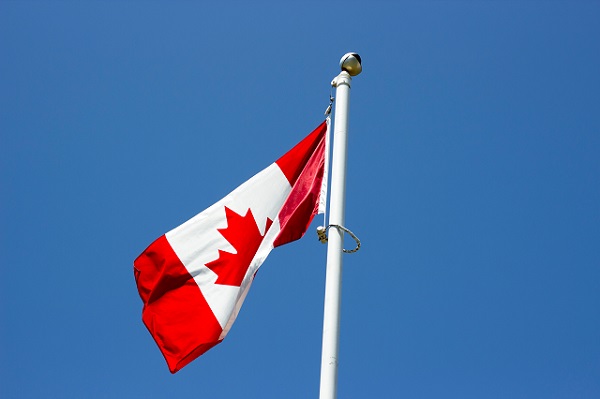
 Business2 days ago
Business2 days agoHigher Capital Gains Taxes cap off a loser federal budget
-
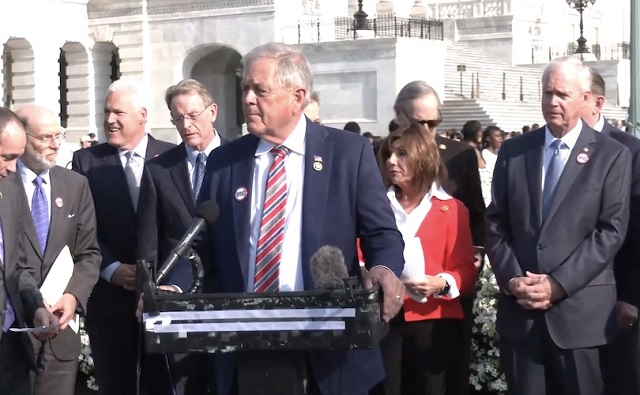
 CBDC Central Bank Digital Currency1 day ago
CBDC Central Bank Digital Currency1 day agoLawmakers, conservatives blast WHO plan for ‘global governance’ on future pandemics
-

 Frontier Centre for Public Policy10 hours ago
Frontier Centre for Public Policy10 hours agoThe tale of two teachers
-

 COVID-191 day ago
COVID-191 day agoJapanese study finds ‘significant increases’ in cancer deaths after third mRNA COVID doses
-

 Brownstone Institute24 hours ago
Brownstone Institute24 hours agoPfizer Lied to Us Again
-

 Brownstone Institute23 hours ago
Brownstone Institute23 hours agoDid Lockdowns Set a Global Revolt in Motion?
-
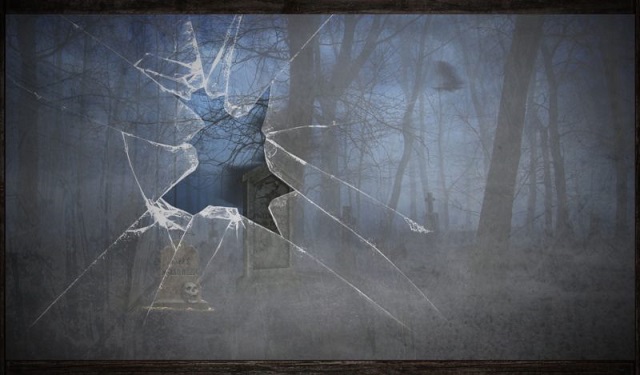
 Brownstone Institute20 hours ago
Brownstone Institute20 hours agoIs the Overton Window Real, Imagined, or Constructed?






